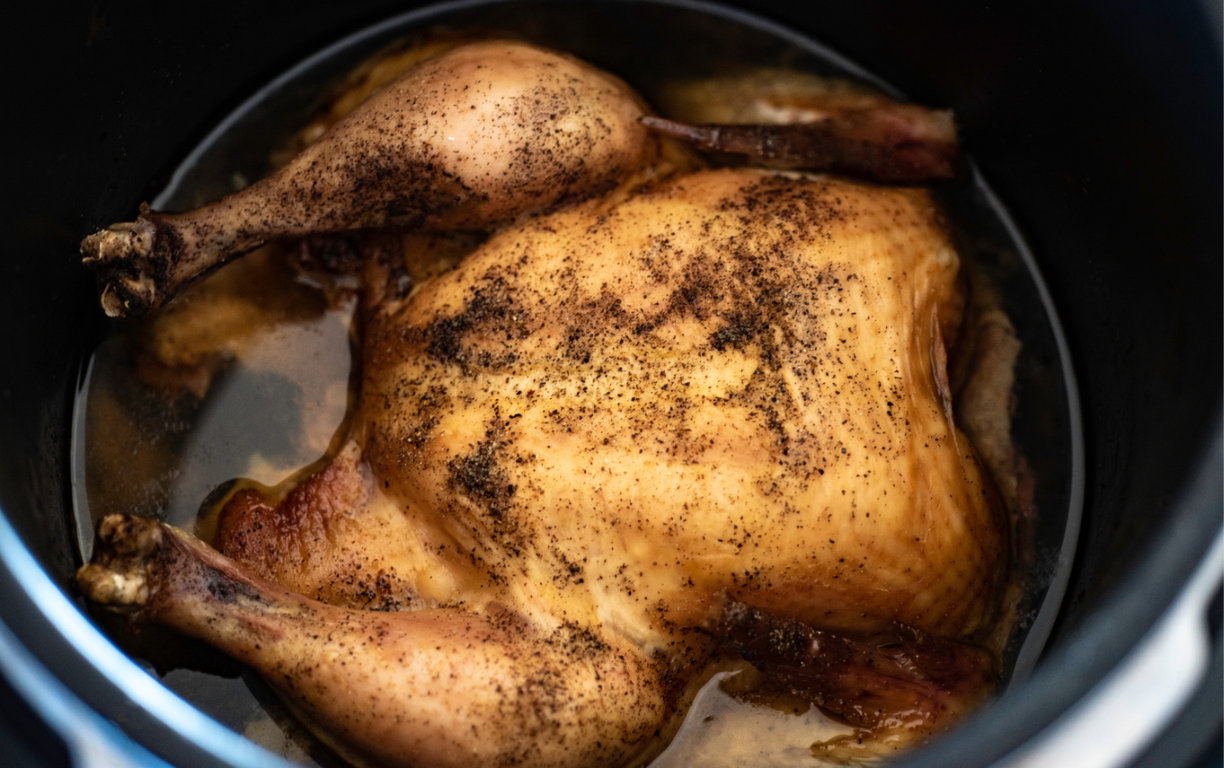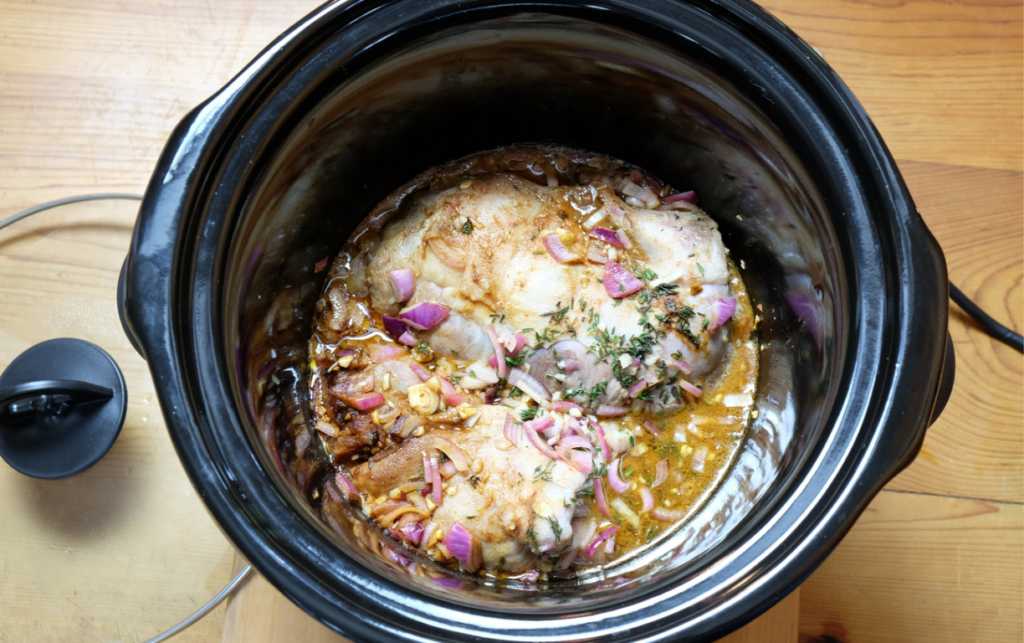Physical Address
304 North Cardinal St.
Dorchester Center, MA 02124
Physical Address
304 North Cardinal St.
Dorchester Center, MA 02124


Slow cookers are a game-changer for busy lives, allowing you to prepare delicious meals with minimal effort. But if you’ve ever wondered whether it’s safe to leave one on overnight, you’re not alone. Many home cooks face this dilemma, trying to balance convenience with safety.
Leaving a slow cooker on while you sleep can be tempting, especially when you want to wake up to a warm, hearty breakfast. However, understanding the risks and best practices is essential to ensure your meal is not only tasty but also safe. Let’s dive into the details and uncover what you need to know about cooking overnight with your slow cooker.
Leaving a slow cooker on overnight raises safety concerns. Understanding fire hazards and food safety is crucial for ensuring a worry-free cooking experience.
Slow cookers operate at low temperatures, which minimizes fire risks. However, inspect the appliance for damage before use. Ensure the slow cooker is placed on a stable, heat-resistant surface, away from flammable materials. Avoid stacking items on or around the cooker. Unplugging the device when it’s not in use further reduces potential hazards.
Food safety is vital when cooking overnight. Keep food at safe temperatures to prevent bacterial growth. Placing frozen meat in the slow cooker is unsafe; it must thaw in the refrigerator first. Use the low setting for extended cooking times to ensure food cooks evenly. Monitor cooking times and adjust accordingly to avoid overcooking or undercooking. Storing leftovers properly in the refrigerator after cooking helps maintain food safety.
Cooking overnight using a slow cooker offers several advantages. The combination of convenience and enhanced flavor makes it an appealing choice for many.
Overnight cooking provides significant convenience for busy individuals. You can prep your meal before bed, allowing you to wake up to a fully cooked dish. This approach caters to hectic schedules, eliminating the need to cook during the day. You can easily prepare a hearty breakfast, lunch, or dinner without compromising your time. Additionally, minimal cleanup follows since you only deal with the slow cooker and any prep utensils.
Slow cooking overnight allows flavors to develop more richly. The prolonged cooking time enables spices and herbs to meld, creating deeper and more complex flavors. For instance, stews, soups, and casseroles benefit from this method, as the ingredients absorb each other’s essences. As a result, you’ll enjoy a more satisfying meal that tastes restaurant-quality. Whether you’re simmering a savory beef stew or a creamy chicken dish, the enhancement in taste from overnight cooking is notable.
To ensure safe and delicious meals when using a slow cooker overnight, follow these recommended practices. Focus on selecting suitable recipes and setting timers properly for optimal results.
Opt for recipes that benefit from long cooking times and maintain safety. Recipes featuring tough cuts of meat, hearty vegetables, or stews work best, as these ingredients emerge tender and flavorful. Avoid recipes with dairy products or delicate vegetables, as they may curdle or overcook. Additionally, consider recipes specifically designed for slow cooking, which often provide timing suggestions to ensure safety while enhancing flavor.
Utilize a programmable slow cooker with a built-in timer to manage cooking times effectively. Set the appliance to cook on low for 8 to 10 hours, which is ideal for overnight meals. Consider using timers on outlet plugs to ensure the cooker turns off automatically after the desired cooking duration. If you lack a programmable model, check the food temperature with a food thermometer after cooking to ensure it’s reached a safe level of 165°F (74°C) before serving or storing.
Leaving a slow cooker on overnight includes several potential risks that you should consider to ensure safety and satisfaction with your meal.
Overcooking can occur when meals are left unattended for too long. Ingredients can become mushy and lose their intended texture. For example, vegetables may overcook and disintegrate, while proteins could become dry and tough. To mitigate this risk, select recipes specifically designed for longer cooking times, such as stews or braised meats, and use the low setting to maintain tender results.
Power outages pose a significant risk when cooking overnight. If power is interrupted, the slow cooker stops running, potentially leading to unsafe food conditions. Bacteria can grow on food that remains warm for an extended period during a power outage. To safeguard against this, consider using a slow cooker with a backup battery option or monitor the weather forecast for potential outages before cooking overnight.
Leaving a slow cooker on overnight can be a game-changer for your busy lifestyle. By following safety guidelines and selecting the right recipes, you can enjoy the convenience of waking up to a delicious meal. Always ensure your slow cooker is in good condition and placed safely away from flammable materials.
Choose dishes that thrive on long cooking times to avoid overcooking and enhance flavors. With the right approach, you can savor the benefits of slow cooking while keeping your home safe and your meals tasty. Embrace the ease of overnight cooking and transform your mealtime experience.

Yes, it is generally safe to leave a slow cooker on overnight, as long as you follow safety precautions. Ensure that the appliance is in good condition, placed on a stable surface away from flammable materials, and cooked at the low setting for 8 to 10 hours.
To cook safely overnight, inspect your slow cooker for damage, choose suitable recipes like stews with tough cuts of meat, and avoid dairy. Use a programmable model for timing and store leftovers properly to maintain food safety.
No, it’s not recommended to use frozen meat directly in a slow cooker. Always thaw meat in the refrigerator before cooking to ensure it reaches a safe temperature and to avoid food safety issues.
Typically, you can leave your slow cooker on low for 8 to 10 hours. If using a programmable slow cooker, set it to switch off automatically after your desired cooking time for added safety.
The main risks include overcooking, leading to mushy ingredients or dry proteins, and power outages, which can create unsafe food conditions. To minimize these risks, choose recipes designed for longer cooking and monitor weather forecasts.